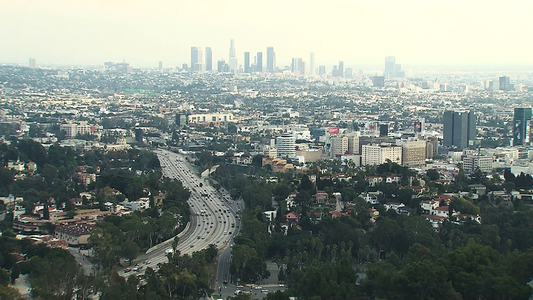The panelists discussed a whistleblower complaint made by a member of the intelligence community that's raising sharp questions, along with the latest in the rising tensions with Iran.
Full Episode: Whistleblower complaint raises questions, tensions rise with Iran
Sep. 20, 2019 AT 10:06 p.m. EDT
TRANSCRIPT
Notice: Transcripts are machine and human generated and lightly edited for accuracy. They may contain errors.
ROBERT COSTA: From Ukraine to Iran, the president’s handling of foreign policy has Washington on edge. I’m Robert Costa. Welcome to Washington Week.
Questions in a confrontation with Congress over a whistleblower complaint. What did President Trump say in a phone call with a foreign leader?
PRESIDENT DONALD TRUMP: (From video.) I’ve had conversations with many leaders. They’re always appropriate. It’s just another political hack job.
MR. COSTA: The complaint is reportedly about Ukraine, which has clashed with Russia and sought U.S. aid. Frustrated Democrats speak out.
REPRESENTATIVE ADAM SCHIFF (D-CA): (From video.) We can’t get an answer because the Department of Justice and the Director of National Intelligence will not authorize the IG to tell us.
MR. COSTA: And President Trump considers his options on Iran following an attack on Saudi oil fields, next.
ANNOUNCER: This is Washington Week. Once again, from Washington, moderator Robert Costa.
MR. COSTA: A whistleblower complaint made by a member of the intelligence community is raising sharp questions about President Trump’s conduct with foreign leaders, and tonight I’ll open my own notebook to start our discussion. Two weeks ago I stood in a windowless conference room at a hotel in Warsaw. I was the pool reporter for Vice President Pence’s meeting with the new Ukrainian president, Volodymyr Zelensky, a 41-year-old former comedian and actor. The atmosphere was tense. Zelensky was bouncing his knees and National Security Adviser John Bolton looked on, stone-faced. The tensions were understandable; Zelensky was eager for Pence to release 250 million (dollars) in military aid that President Trump had held up, funds Ukraine said it needed to deal with Russian aggression, but the VP did not make any concrete promises. Instead, he echoed Trump and said Ukraine must take steps to address corruption in its country before the U.S. hands over the cash. That meeting was a snapshot of an uneasy standoff that had lingered for months with 2020 politics swirling. According to reporting by both The Washington Post and The New York Times, President Trump’s handling of Ukraine this summer, including a phone call with a foreign leader, raised a red flag with at least one unnamed intelligence official who filed a formal complaint. While the 250 million (dollars) was eventually released, the Trump administration is now under intense scrutiny about whether it pressured Ukraine to investigate former Vice President Joe Biden’s son Hunter, who once worked for a Ukrainian company. President Trump’s lawyer, Rudy Giuliani, has called repeatedly on Ukraine to investigate the Biden family, but the looming question is this: What did President Trump say in private? The Wall Street Journal reported late Friday afternoon that Trump, quote, “repeatedly pressured” Zelensky about eight times to work with Giuliani, but their source did not believe the president offered, quote, “any quid pro quo.” Here’s what he said Friday at a news conference.
PRESIDENT DONALD TRUMP: (From video.) It doesn’t matter what I discuss, but I will say this: somebody ought to look into Joe Biden’s statement because it was disgraceful where he talked about billions of dollars that he’s not giving to a certain country unless a certain prosecutor’s taken off the case. So somebody ought to look into that, and you wouldn’t because he’s a Democrat.
MR. COSTA: Joining me tonight, Kayla Tausche, Washington correspondent for CNBC; Michael Crowley, White House correspondent for The New York Times; Lisa Desjardins, congressional correspondent for the PBS NewsHour; and Vivian Salama, White House reporter for The Wall Street Journal.
Michael, you’re a national security reporter, White House reporter at The New York Times. What else have we learned about this complaint?
MICHAEL CROWLEY: Well, we know that it involves a conversation the president had with a foreign leader and we know that it also involves Ukraine. And tonight The New York Times is also reporting that President Trump did pressure Ukraine’s President Zelensky to investigate whether Joe Biden’s son might have, you know, done something inappropriate in Ukraine, and whether Joe Biden might have intervened. Really, the underlying facts there don’t bear out the president’s fury that there was something sinister going on. But we still don’t have the full contours of what this whistleblower complaint consists of. Someone in the intelligence community filed a complaint and it has multiple components to it. So Ukraine is one part of it; there’s a call with a foreign leader. We don’t know if that is the same thing as the Ukraine complaint. And Congress by law ought to be seeing this complaint by now but has not, so another aspect of what’s happening here is an assertion of executive authority by the Trump administration to keep this complaint away from Congress. So still a lot of unanswered questions, but there’s a funny smell to it, that’s for sure.
MR. COSTA: Why does it matter that President Trump urged Ukraine to deal with corruption and potentially to investigate Joe Biden and his family?
VIVIAN SALAMA: Well, it’s very troubling for any leader of the United States to go and ask a foreign country for help, especially when that help involves any kind of interference with a U.S. election or any of the government process in general. And so for the president to have gone and requested to them to investigate or requested for them to get involved somehow in any kind of investigation that would involve his potential rival in the 2020 election, that could be a serious, serious incident that would raise a lot of hair on Capitol Hill and potentially start, you know, rallying a lot of people who have maybe been sitting out with the impeachment battles for this – to this point to really get involved, right?
LISA DESJARDINS: You know, since Trump took office, since he became president, we’ve had this phrase “constitutional crisis” sort of somewhere overhead from some people, but not the firing of an FBI director, not the moving of congressionally appropriated funds for a national emergency; that hasn’t done it. But this, honestly, Robert, it seems on Capitol Hill there’s a sense that this is in a no-man’s zone in the law because there’s a – it’s complicated, but essentially while the law says that this kind of complaint shall be submitted to the intelligence committees, it says that the director of national intelligence is supposed to do that, but there’s not a clarity in the law if the director of national intelligence thinks that it’s inappropriate. So it’s a real jump-ball. I think this is headed to court and it could be very complicated.
KAYLA TAUSCHE: Well, just the fact that there was even a whistleblower complaint filed formally about this call, I spoke to an official who frequently has access to these calls and he said that, you know, there has been some sort of desensitization over the first two-and-a-half years of the Trump presidency. We remember in the beginning, in the dawn of the presidency, a lot of these transcripts were leaked. There was some shock value about the casualty with which the president was conducting himself on some of these calls. That went away over time as people got to know his style a little bit more, but this official said the fact that there even was a complaint, when The Wall Street Journal reported that he mentioned this investigation eight times, that it would have to be something that glaring to lead an official to actually raise their hand and say I’m going to go to the inspector general about this.
MR. COSTA: So the question here is, President Trump, was he seeking a quid pro quo or not? Was he using his executive power in an improper way?
MR. CROWLEY: Exactly, exactly. Now, I’m not sure you have to demonstrate there was a quid pro quo to feel that what the president was doing was inappropriate. So one possibility is the president is hectoring and haranguing the leader of a foreign country to conduct an investigation that could damage one of the president’s political opponents. I mean, that in and of itself seems like it crosses a line, seems inappropriate, seems like –
MR. COSTA: Would that be considered election interference?
MR. CROWLEY: I think it could be. I think it could be. You know, Joe Biden is a Democratic candidate. If Ukraine were to come up with information that hurt his candidacy, why not? I mean, absolutely it would have a real impact on the race if something were to come out. The other piece of it, though, is, is President Trump manipulating the levers of American foreign policy, this military assistance to Ukraine, which has a kind of geostrategic rationale to help check Russian aggression, for his own kind of petty political purposes? That takes it to a whole new level. So I think even the better-case scenario is pretty bad. The worst-case scenario, you could see a strong argument for high crimes and misdemeanors.
MR. COSTA: Well, the Democrats on Capitol Hill are going to have to make a decision about how to proceed here, and House Speaker Nancy Pelosi has vowed to push Congress to review the complaint. She says the episode raised grave and urgent concerns about national security. House Intelligence Committee Chairman Adam Schiff said Thursday that his committee was exploring all legal options, but admitted the situation could take weeks, even months to move through the courts. And while campaigning in Iowa on Friday, former Vice President Biden said this: “I have no comment except the president should start to be president.” He then issued a statement really criticizing President Trump’s possible conduct on this call. What kind of strain does this cause with Congress? You already have a White House on the brink of a major confrontation on a range of issues. What does this do to the relationship between the White House and Capitol Hill?
MS. SALAMA: Well, you’ve had Congress very split, even within the Democratic Party in terms of whether or not impeachment is the right path forward. Nancy Pelosi – Speaker Pelosi has been very reluctant to go down that route. And so when you have evidence like this, whether or not there was a quid pro quo, whether or not the president said, oh, you know, hypothetically speaking, you know, I will reinstate any aid cuts that I was going to do for your – anything, any kind of quid pro quo – it might not matter at this point because just the idea of the president allegedly trying to tell them, you know, we’re going to – we want you to investigate my competitor, that by itself may be enough to get some of those Democrats who are on the fence to really rally behind the impeachment clause. It’s the Republicans who are going to be the question, really –
MR. CROWLEY: Really quickly, the phone call with Zelensky was the day after Robert Mueller testified on Capitol Hill, completing his report involving election meddling by a foreign power.
MR. COSTA: So is this a president emboldened? Is this a president who feels like he can shatter almost any norm, regardless of what he exactly said in a phone call with a foreign leader?
MS. TAUSCHE: Well, it’s certainly one of the frustrations of Republicans that if he is emboldened then he is prone to these unforced errors. This is not something that anyone asked him to do, that he even had to do, but he clearly felt like he was on his back feet here and needed to do something about it. So that’s one of the frustrations.
I will say, to the point about Capitol Hill and the relationship between the White House, I do think that the White House has public opinion on its side here. Even internal Democratic polling shows that only one in 10 voters thinks that Congress should be spending time investigating President Trump. The news cycle moves quickly, wheels of justice turn slowly, and we haven’t really seen a lot of fruits of these labors.
MR. COSTA: Lisa, you were – Lisa was in the room for when Corey Lewandowski came to the House Judiciary Committee. Do you see Speaker Pelosi and Chairman Nadler – are they on the same page as they process what happened with the president possibly with Ukraine, with Corey Lewandowski and the Mueller report? What’s their next step?
MS. DESJARDINS: They’re on the totally same page. No, not at all No, they’re really there – (laughter) – behind the scenes Nadler is much more aggressive. He wants to move to impeachment. And I think that Nadler and those around him, meaning his core staff, which is probably as key as anyone in these decisions, they’re ready to move to impeachment, and I actually think that it looks likely that that could happen this year.
However, something to bring into this whole conversation about this whistleblower complaint, there’s a lot of talk about the actual substance of what the president did in whatever phone call, all of that. You have to remember Democrats are looking at this in two layers. Even with Lewandowski, the Lewandowski hearing, they knew he was going to try and outsmart them. They knew it was going to be sort of a rope-a-dope for a long time. What Democrats are doing here is they’re building a case that right now the president is obstructing justice by not giving them the whistleblower complaint, by not allowing their officials to testify, and that was part of the original articles of impeachment against President Nixon. They’re making a case that obstruction is happening now because of their investigations.
MR. COSTA: What can Democrats do or what can the Congress do to learn more, to try to find out if there’s audio? Will the whistleblower testify? Are there any options here?
MR. CROWLEY: I would defer to my colleagues, but my quick response is the Congress can make a lot of demands, as it has been doing for months, and the Trump administration will say that’s nice, we’ll think about it; no, actually, we’re not going to give that to you; and then it goes to the courts. And this stuff is going to wind its way through the courts and take forever, and probably not until after the outcome – the outcome of the election, I’m sorry.
MR. COSTA: Does it matter that Rudy Giuliani, the president’s personal lawyer, was working on a foreign policy project, perhaps with the suggestion of President Trump, the encouragement, or not? But he was out there.
MS. SALAMA: Of course. I mean, it’s his personal lawyer. He was acting on behalf of the president, so that’s obviously very troubling. And he’s not really hidden the fact that he was in some capacity going out there to perhaps make this deal on behalf of the president. He’s spoken pretty honestly about it, definitely to The Wall Street Journal and to others. And so it’s really a question of, you know, maybe they’d require him to testify to some – you know, to some extent. But without transcripts, without a recording, it’s going to be difficult. It’s not just that the White House has public opinion on their side; they have the Senate on their side, too. And I can’t really see the Senate entertaining any idea of impeachment or anything else with the election 14 months away.
MR. COSTA: What about the Republican Party? Is this a breaking point or not for them?
MS. TAUSCHE: Which one, the Ukrainian whistleblower?
MR. COSTA: Yeah, does the president’s conduct or possible conduct –
MS. TAUSCHE: The American whistleblower about the Ukrainian phone call.
MR. COSTA: When you talk to your sources today in the Republican Party, are they aghast at what possibly happened here or are they standing firm with President Trump?
MS. TAUSCHE: I think they wish that it hadn’t happened. I think they wish that he knew the confines of the office a little bit better, or at least observed them a little bit better. I think there is a repeated frustration with incidents maybe not to this extent, but that are similar. But they understand that he is the candidate, he has extremely well-lined pockets at this point, he is gunning full swing into the election next year, and I think they are – they are choosing to get in line.
MS. DESJARDINS: It’s tough, especially for members of the Senate Intelligence Committee, which by the way, we talk about the House so much and Adam Schiff, the Senate Intelligence Committee is also having a hearing next week where they expect to talk to the inspector general and the DNI, and they’re –
MR. COSTA: Will the White House let the DNI come to Capitol Hill?
MS. DESJARDINS: I don’t – they’re going to ask, but certainly at least the inspector general. And so there you’re going to have Richard Burr of North Carolina, you’re going to have some Republicans that have been uncomfortable and had a difficult time with this president having to deal with it face to face.
MR. COSTA: This isn’t the only challenge that President Trump is confronting this week. Following attacks on Saudi oil facilities last weekend, the U.S. now says Iran is behind those attacks and announced new sanctions today on the Iranian central bank. Iran denies responsibility. And on Friday later, just before the show went to air, Defense Secretary Mark Esper announced that the president has approved the deployment of U.S. forces to Saudi Arabia to provide defensive support. According to the Associated Press, that was among the options Pentagon officials presented the president for how to respond. The others were military strikes inside Iran, cyberattacks. And earlier in the day the president said he would exercise restraint.
PRESIDENT DONALD TRUMP: (From video.) In my opinion it shows strength because the easiest thing I could do, OK, go ahead, knock out 15 different major things in Iran. I think it shows far more strength to do it the way we’re doing it. The thing that does show strength would be showing a little bit of restraint.
MR. COSTA: Kayla, when you’re reporting at CNBC on the market and business and you’re following these sanctions, it’s already been maximum pressure from the U.S. on Iran. What do these new sanctions mean for the Iranian economy and the Iranian leadership?
MS. TAUSCHE: Well, we’re getting pretty close to an economic blockade where essentially the U.S., to exert any more pressure than it already has, would essentially have to bar any company – any country from doing any business with Iran. We’re not there yet, and clearly there seems to not quite be a coalition behind President Trump here. I mean, this is going to really come up next week at the U.N. General Assembly, but European countries, they’re trying to uphold the old deal, they’re trying to extend a financial lifeline to Iran, and so President Trump is between a rock and a hard place here. He doesn’t really have a military option here. Gas prices would skyrocket. You’d have a recession going into an election year. And he ran in 2016 on ending military conflict, not increasing military conflict. So he’s really in a difficult position, and it appears that Iran, with these various strikes, is trying to call his bluff.
MR. COSTA: Vivian, you’ve been a bureau chief in Baghdad for the Associated Press, now with The Wall Street Journal. Saudi Arabia and the crown prince, Bin Salman, have a scattered, spotty record on human rights, including the death of Jamal Khashoggi, a Washington Post writer. Why is the U.S. so aligned with Saudi Arabia despite that human rights record?
MS. SALAMA: Well, money, to – just to put it – I mean, that’s the brief explanation behind it, and President Trump said it very bluntly this week. He said the Saudis pay cash. That is literally how he looks at it, where he says, listen, we can overlook some of that human rights stuff and other things because at the end of the day they’re going to buy American products, they’re going to keep jobs flowing, they’re going to pump money into our economy, and that to us is OK and that’s going to be our priority. And so even as all of this stuff was going on he was saying the Saudis pay cash, we need to stay connected with them. But when asked are you going to defend – have you promised Saudi Arabia that you’re going to defend them if a war – it comes down to war, he said I never promise anyone anything. So that’s the thing; even with that relationship he’s reluctant to get involved in a war.
MR. CROWLEY: Well, there are so many contradictory impulses here because before he was president Donald Trump had this long record of saying, you know, Saudi Arabia’s ripping us off – we defend them, they don’t pay enough money, it’s not our job to defend Saudi Arabia. Now he sees that we do a lot of business with Saudi Arabia, you know, he’s got good relationships; his son Jared Kushner is very close to the crown prince. And then, you know, I was struck by what Kayla was saying, which I think is exactly right, that he doesn’t have good military options here. I think he very much does not want a military conflict that could rattle the global economy as he heads into his reelection campaign. At the same time, he loves the power of the presidency. So one display at the White House today where he’s signaling I’m going to be patient, I’m going to show restraint, but he can’t resist talking about we’ve modernized our nuclear forces, our nuclear is like it’s never been before. Who’s talking about nuclear weapons right now? Why is he saying this?
MS. DESJARDINS: Well, if I wanted to, yeah.
MR. CROWLEY: And he even – I have to just get this in – he said I could order a strike; in fact, I could do it in one minute, I could do it with all of you guys right here, almost like he was fantasizing about starting a war in front of the press corps, but I don’t think he’ll do it.
MR. COSTA: Yet, he’s non-interventionist to this point, and he’s not listening to some of his top allies on Capitol Hill like Senator Lindsey Graham of South Carolina. Is that because, even though he sometimes hires people like John Bolton as national security adviser and plays golf with Senator Graham, is he a non-interventionist? Is that how Republicans see him?
MS. DESJARDINS: I think so far he has shown himself in action to be more of a non-interventionist, but I think Republicans don’t know the answer to that. And the other person that he talks to a lot and plays golf with is Rand Paul, who is decidedly a non-interventionist. So he sort of has these two voices, one on either shoulder, all the time. This was a night where Rand Paul, I think, came out more with what he wants. But it’s really interesting, on this whole Saudi Arabia area it’s fascinating to me because this is the area where the president has the greatest divide with Republicans in Congress. They do not trust Saudi Arabia. They do not want us involved in Yemen. The president has pushed forward – they voted four times to try and override his Saudi Arabia policy; his veto power allows him to continue. So it’s a very precarious area for him politically.
MR. COSTA: What has this done, this whole the U.S. is on the brink of war with Iran, meant for the oil markets and the global economy this week? Has that been a factor for the administration as they thought through this decision tonight?
MS. TAUSCHE: Sure, when you see major correspondents for the nightly newscasts on Monday night standing outside of gas stations talking about skyrocketing prices for U.S. consumers, I mean, that’s exactly the scenario that the president wants to avoid. He’s talked about energy deregulation, how prices are getting lower for people. Clearly, we saw the Saudi economy able to jump back very quickly. I mean, they really got their production levels I think back at a record time; everyone was surprised that all of a sudden everything was OK. But I do think that it raises some real questions about what does the U.S. do with the Strategic Petroleum Reserve. The administration was going to sell off a bunch of that to raise cash to try to plug part of the deficit, and now maybe they’re reconsidering, do we need that just in case this gets worse?
MR. COSTA: What about the new national security adviser, Robert O’Brien? What does his involvement in these discussions mean for U.S. foreign policy and with the decision with Iran?
MS. SALAMA: Well, it’s more a question of what John Bolton’s absence from these conversations do, because obviously John Bolton, his predecessor, was very hawkish on Iran, probably more so than most. He was very much – viewed an aggressive approach to Iran as the right approach. What we – what little we know about Robert O’Brien’s, like, global view is that he is also a hawk. In his book he said that Iran is the sworn enemy of the United States, but he’s probably much more moderate than John – than John Bolton was, and so it will be interesting to see what he does. The question is, where does President Trump go from here, I mean, in terms of we’re going to the U.N. next week? He wants to form a coalition. He’s been skeptical about the U.N., he’s condemned the EU, and he’s not meeting with any GCC leaders. The Russians are not there. The Israelis are not there. The Germans are not there – are not meeting with him. The French are not meeting with him. Who’s left?
MS. TAUSCHE: And the architect of his previous Iran strategy is also not there.
MS. SALAMA: Exactly.
MR. CROWLEY: Who’s left? He is meeting – sorry, go ahead – but he is meeting with the Ukrainian president, Zelensky, which will be fun. But I’m sorry, go ahead.
MS. SALAMA: And Boris – and Boris – and Boris Johnson, who has his own problems.
MS. TAUSCHE: The question that I heard raised most often today was not what do we know about O’Brien, but who is he going to choose for his staff. That will send the clearest signal about the direction of this recalibration, if we should call it that, on Iran, and who he chooses to essentially signal where his policy will go.
MR. COSTA: Is part of it the rest of the world is engaging with Iran? China has its own relationship with Iran. Europe wants to see the Iran deal come back.
MR. CROWLEY: Yeah, and I think that’s – China in particular has been moving forward with some really major investments involving Iran, and you know, one risk here is that Trump isolates the United States and the rest of the world kind of moves in. And you know, Trump is in this showdown with China economically, but it’s not clear that we can prevent the Iranians and potentially the Russians and other countries from kind of taking advantage of this opportunity and building a relationship. And if there comes a point where Iran’s oil comes back online and the U.S. sort of loses this confrontation, that’s very profitable on that side of the world and the U.S. is left out of it. So you know, the president is playing a dangerous and risky game here. And you know, Robert O’Brien is really personally well-liked, the new national security adviser; he does not have deep, shall we say, strategic credentials and experience within federal bureaucracy. So with the president, there’s a lot going on and he doesn’t have, necessarily, the most experienced team you would want.
MR. COSTA: Final thought: Congress, if there is action taken, will there be a push – pressure – to have authorization on Capitol Hill?
MS. DESJARDINS: Oh, absolutely; not from everyone, but from many members. They’re very uncomfortable –
MR. COSTA: Republicans?
MS. DESJARDINS: I think there will be a few Republicans, but I want to see how they vote. In the past we saw Republicans like maybe a Bob Corker say something and then sort of vote with the president, get cowed down. There’s not a tremendous amount of public bravery from Republicans in public, but certainly there will be an outcry. Look at, you know, Senator Kaine from Virginia, there will be others. Congress is supposed to declare war, so if there is military action you’ll hear about it.
MR. COSTA: We must leave it there, and we’ll keep our eyes on Congress.
Coming up on the Washington Week Extra, we will discuss the president’s battle with California. The state is now the epicenter of a showdown over federal and state power.
But before we go, we remember Cokie Roberts, one of the founding mothers of NPR, who died September 17th at age 75. Cokie was a trailblazing journalist there and at ABC News, and a terrific writer. Her books on American women brought history to life. She also appeared on WETA programs over the years along with her husband, reporter Steve Roberts. We will all miss her crackling smile, probing mind, and endearing spirit.
I’m Robert Costa. Good night.
MOST POPULAR

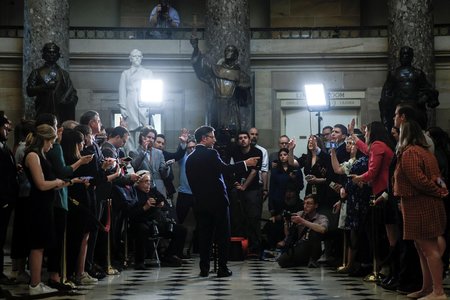
Full Episode: Washington Week with The Atlantic full episode, 4/19/24

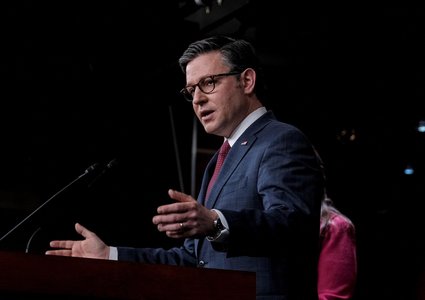
Clip: Will Democrats rescue Johnson's speakership to protect aid for Ukraine and Israel?

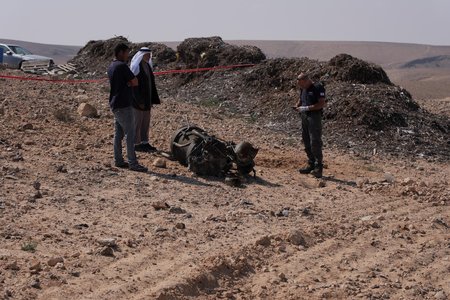
Clip: Attacks in Israel and Iran bring more uncertainty to Middle East
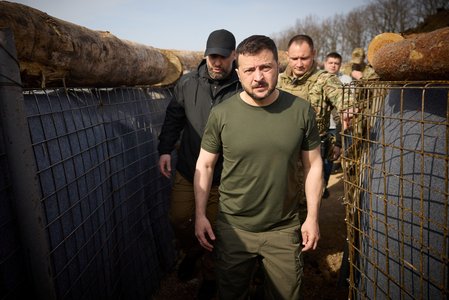
Preview: Coming Up on Washington Week with The Atlantic

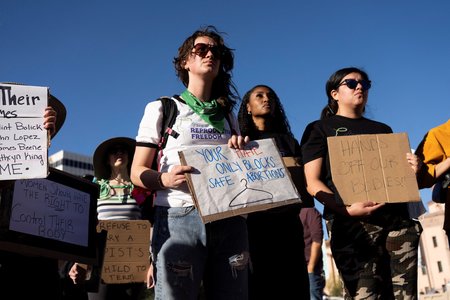
Full Episode: Washington Week with The Atlantic full episode, 4/12/24

© 1996 - 2024 WETA. All Rights Reserved.
PBS is a 501(c)(3) not-for-profit organization
